
You can finally view your saved passwords in Chrome for Android
One of the great things about modern web browsers -- desktop and mobile variants -- is that they can store your passwords for you to save you from ever having to type them in. But this does have its drawbacks; stripped of the need to enter passwords, it's very easy to forget what they are!
The desktop version of Chrome has long given users the option to view the passwords they have saved, and now this same feature has made its way to the Android version of the browser. There's now no need to use the Google website to manage your passwords.

Facebook offers (some) clarification about newsfeed changes amid panic from page owners
Changes to the Facebook newsfeed are generally somewhat controversial, not least because many people wish Facebook would just stop buggering around and leave things as they are for a while. But the latest change that's being tested has some people -- page owners and publishers in particular -- worried.
Facebook is testing splitting the newsfeed in two: one half for posts from friends, and the other half from pages. There is an exception, however: promoted posts from pages can appear in the personal newsfeed. This has caused concern because smaller publishers and business fear their posts will disappear and not be seen, while those with big budgets remain visible. But Facebook is trying to calm anxieties.

Google makes it easier for businesses to take online bookings
Businesses in the US now have a new way to sign up with one of Google's booking partners and to add a booking button to their search listing.
Anyone in the US with a Google My Business account can benefit from the addition of a booking button that enables people to book a reservation with a simple click. It's a continuation of the idea started with Reserve with Google, and the search giant is making it easy for businesses to track their online booking through their accounts.

Google says the majority of Chrome traffic is protected with HTTPS
Google has already used Cybersecurity Awareness Month to announced details of a new bug bounty program for Android apps, as well as a new Advanced Protection Program for G Suite users. Now the company has revealed that most web traffic in its Chrome web browser is protected by HTTPS.
The precise figures vary from platform to platform -- with ChromeOS and macOS faring the best -- but between 64 and 75 percent is now secured. Google humblebrags about the results of its mission to "secure the web, one site at a time," after opting to mark non-encrypted pages as being insecure.

Twitter shares timetable for tackling abuse transparently between now and January
With promises made by Jack Dorsey and a leaked email indicating that Twitter was ready to do more to start tackling abuse on the site, it should come as little surprise that the company has now published a timetable for what it intends to do over the coming months.
Entitled the "Calendar of Our Safety Work," the document details the changes that Twitter is going to make between now and the middle of January. The timetable covers subjects such as non-consensual nudity, hateful imagery, violent groups and hateful display names. There's an unprecedented level of transparency that Twitter will hope convinces people that it is taking matters seriously.

Facebook is testing a temporary profile status feature
Facebook has confirmed that it is currently testing a feature that enables its users to setup a self-destructing status. It's something that's in a similar vein to the temporary profile image option that's already available.
There's something of a nostalgic feel to the feature as it harks back to the earlier days of Facebook when users were invited to share their status rather than being asked "what's on your mind?"

Google Calendar for the web finally gets a redesign and new enterprise features
After years of little more than minor tweaks here and there, Google Calendar for the web is finally getting a long-overdue update. Inspired by the mobile app Google has developed, the revamped online version of Calendar gains a new color palette, as well as a layout rejig and a few new features.
The new look uses Google's Material Design scheme, and the update means that Calendar now intelligently resizes for different screen and browser window sizes. There are various new features for enterprise users, but there are also new views, and a focus on displaying more useful information than before.
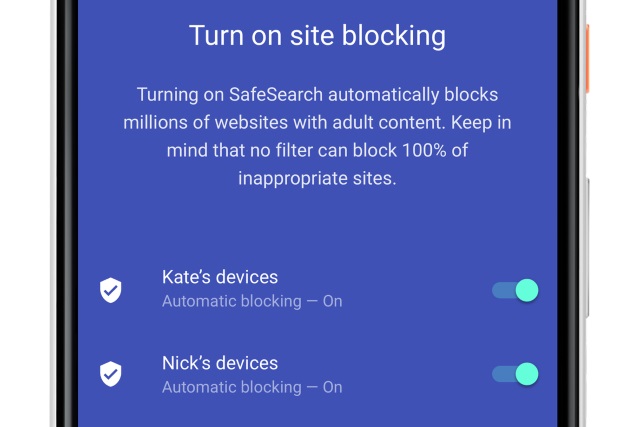
Google Wifi update brings site blocking to parental controls
An update is rolling out to the Google Wifi app which gives parents greater control over the websites their children can visit.
The update adds Site Blocking to Google Wifi's family controls, making it possible to block more than 8 million sites at the flick of a switch. These are sites that Google has determined are inappropriate for children.
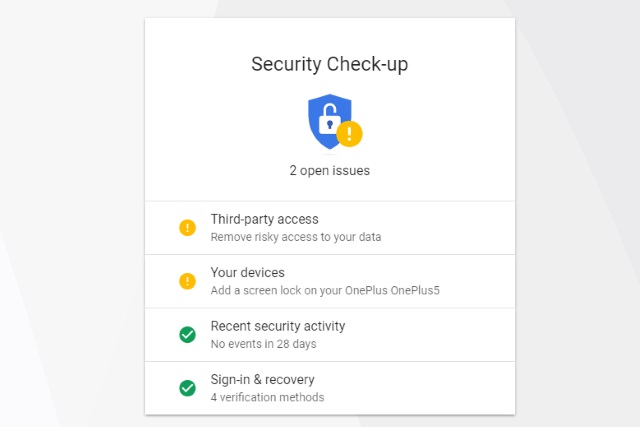
Google launches personalized phishing protection and updated Security Checkup tool
We're in the middle of Cybersecurity Awareness Month and Google is taking part. The company has launched two updated protection tools to help keep internet users safe online.
While Google refers to "two new protections," these are really updates rather than completely new offerings. Both the Security Checkup tool and Google Safe Browsing have been updated to make them more personal, and both of them will adapt over time to protect against new threats.
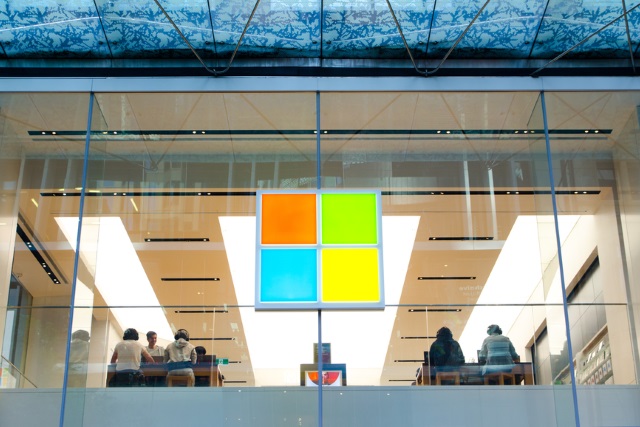
[Updated] Microsoft has patched Windows against the KRACK Wi-Fi vulnerability -- Google will secure Android soon
Earlier today, news broke about the KRACK vulnerability that affects the WPA2 protocol. Security researchers have warned that the problem affects millions of devices running everything from Windows to Android and Linux.
Microsoft has announced that it has already released a security patch to fix the vulnerability in Windows. Google says that a patch for affected Android devices will be released "in the coming weeks."
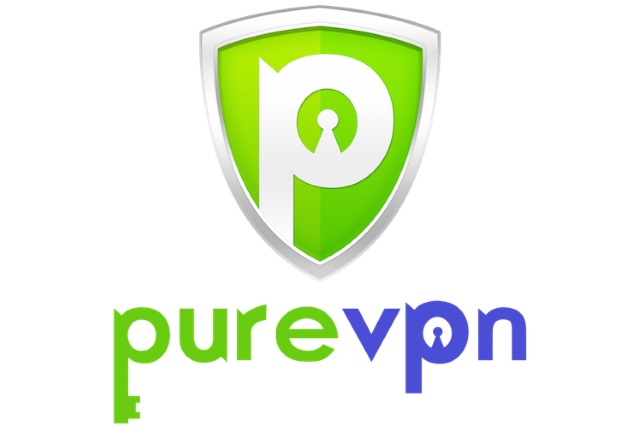
PureVPN scrambles to defend itself against accusations of logging users
Last week it transpired that PureVPN had helped the FBI track down a cyberstalker from Massachusetts. This came as something of a surprise to other PureVPN users who were under the impression that using the service made them completely anonymous -- a belief strengthened by the company's assertion "We do NOT keep any logs that can identify or help in monitoring a user's activity."
Strictly speaking, this is true, but that's not to say that the company doesn’t maintain IP logs that can be used to identify users. The company does exactly this, logging IP addresses and timestamps, and this is how it helped the FBI. In a blog post, the company tries to explain this as it attempts to convince concerned users that it is not logging their activities.
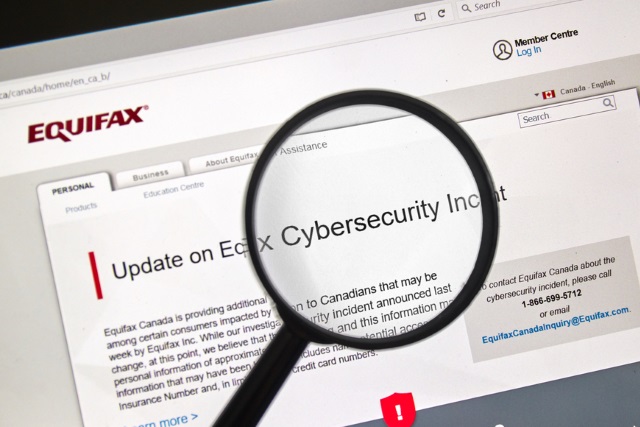
Another Equifax security alert as support page leads to malicious fake Flash updates
Things have not been good for Equifax -- or its customers -- recently. Following a huge data breach earlier in the year, the credit reporting company has now suffered a new blow after it was discovered one of its support pages was redirecting to malware masquerading as Flash updates.
Just last month, Equifax revealed a security breach from May that exposed the personal details of around 145.5 million Americans and 15.2 million people from the UK. Now the company site has been found delivering fake Flash updates, and the offending page has been taken down.

Twitter is working on a 'save for later' bookmarking system
Twitter has said that it is working on a bookmarking feature, overcoming one of the complaints users have about the micro-blogging service. Twitter users currently have the option of liking tweets, but this means running the risk of influencing the algorithms that control what appears in your timeline -- and perhaps making it appear as though you like something you actually disagree with, or result in you publicly liking something you'd rather keep private.
The company's head of product, Keith Coleman, made the new bookmarking revelation on Twitter, saying it is a frequently requested feature. The new 'read it later' option came out of Twitter's HackWeek, and while no launch date has been announced, it is coming "soon" and an early design has been previewed.

FBI uses PureVPN's 'non-existent' logs to track down internet stalker
No longer operating under the illusion that the internet offers a mask of anonymity, increasing numbers of people are turning to VPN software to protect their privacy and mask their identity online.
But a recent case shows that the FBI used the logs of PureVPN to track down a user believed to be an internet stalker. This may make PureVPN users think twice about just how anonymous they really are, particularly when the company claims: "We do NOT keep any logs that can identify or help in monitoring a user's activity."

Facebook test brings context to links that are shared in your newsfeed
One of the problems with Facebook -- and the internet in general -- is that it has been incredibly democratizing in terms of who is able to publish news and other messages online. Democratization of anything is usually perceived as a good thing, but as the genuine problem of "fake news" (i.e. not the notion peddled by Trump that anything presenting an opposing idea is fundamentally untrue) demonstrates, it can also be a bad thing.
To help with this, Facebook is testing a feature that helps to add context to stories and links that appear in your newsfeed.